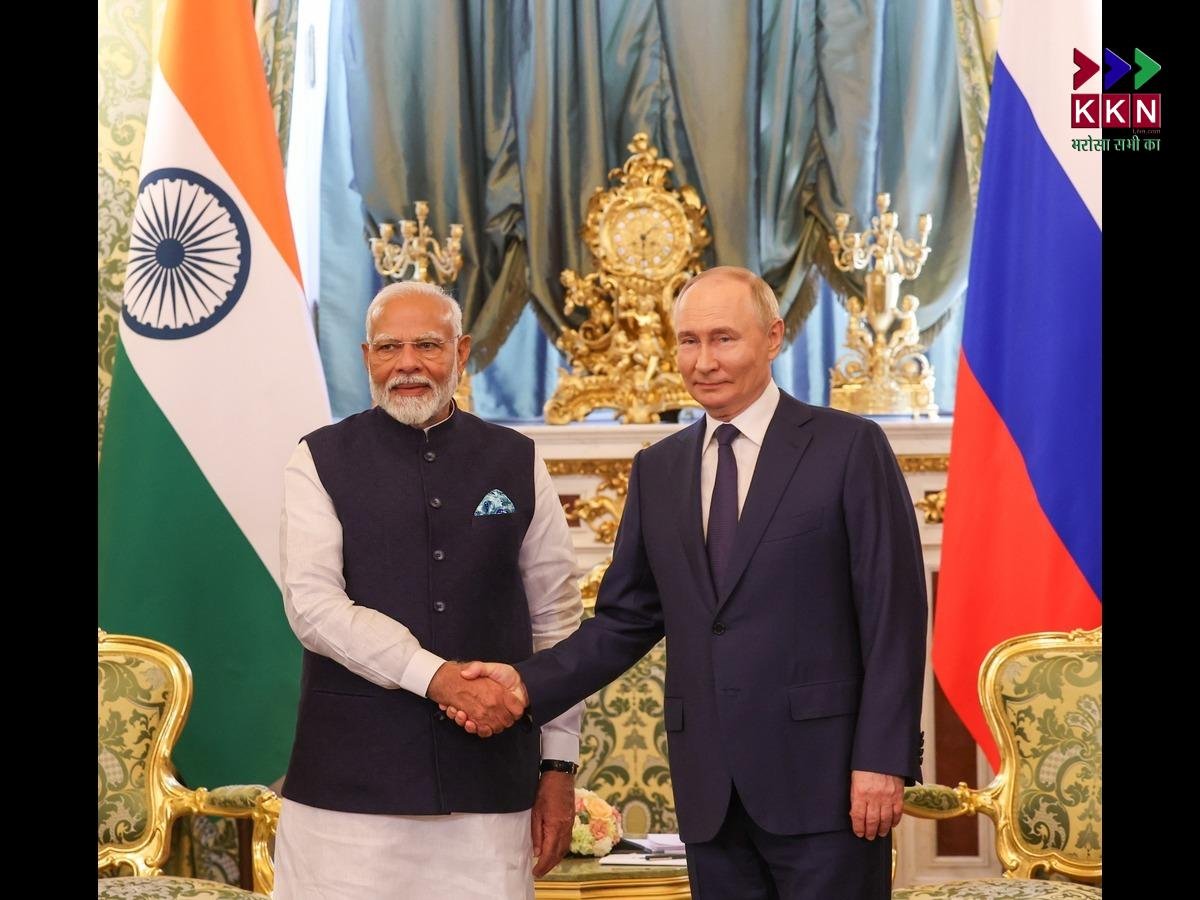
India has reaffirmed its commitment to continue importing crude oil from Russia, defying mounting international pressure and the United States’ renewed tariff actions. Sources cited by ANI confirmed that Indian oil refineries have not altered their purchase strategies and will maintain their supply ties with Russian companies.
Refinery decisions remain grounded in economics, with factors like crude quality, price, supply reliability, and logistics driving choices. Despite rising geopolitical tensions and repeated signals from Washington, India-Russia oil trade remains robust and unaffected.
Indian Oil Strategy Guided by National and Economic Priorities
According to official sources, Indian oil refineries make independent procurement decisions based on a basket of practical considerations. These include the landed cost of crude, processing compatibility with domestic refineries, delivery timelines, and long-term reliability of the supplier.
Russia has remained a key oil partner for India, especially since 2022 when global crude markets turned volatile due to the Russia-Ukraine conflict. Indian companies have consistently chosen affordability and logistical viability over political alignment.
While Western media and US officials have urged nations to reduce dependency on Russian energy, India has taken a firm stance, maintaining its energy sovereignty. The message is clear—India’s oil policy will not be dictated by global political theatrics.
Price Cap Framework Still Intact, India Remains Compliant
There has never been a formal international ban on Russian oil, sources clarified. Instead, the G7 nations and the European Union introduced a price cap mechanism to limit Russia’s oil revenue without disrupting global supply.
Indian public sector oil marketing companies have followed this framework strictly. They have complied with the earlier cap of $60 per barrel, ensuring adherence to international guidelines while protecting national energy interests.
Recently, the EU has proposed reducing the price ceiling further to $47.6 per barrel, with implementation expected from September. Indian companies are monitoring this change and will adjust procurement decisions accordingly, based on feasibility and supply conditions.
India’s Role in Stabilizing Global Oil Markets
India’s energy diplomacy during the 2022 oil crisis demonstrated pragmatism and global responsibility. In March 2022, crude prices surged dramatically, with Brent reaching $137 per barrel due to the Russia-Ukraine war.
Instead of panicking or caving to Western pressure, India opted to buy discounted Russian crude, which played a major role in keeping international oil prices from spiraling further. By balancing demand and ensuring consistent purchases, India helped cushion global markets from deeper disruption.
Sources suggest that without India’s intervention, coupled with OPEC+ production cuts of nearly 5.86 million barrels per day, global prices might have crossed the $150 mark, deepening inflation and triggering severe energy shortages worldwide.
India Avoided Sanctioned Oil from Iran and Venezuela
In the midst of geopolitical instability, India chose to honor international sanctions where they were formally implemented. Unlike its continued oil ties with Russia, India avoided crude oil imports from countries like Iran and Venezuela, which remain under active US sanctions.
This selective approach reinforces that India’s energy policy is consistent, sovereign, and rule-based. The decision to continue India-Russia energy cooperation stems from a combination of strategic interest and real-time economic calculus.
Despite having historical ties with Iran and significant interest in Venezuelan reserves, Indian refiners respected existing US restrictions, showcasing a nuanced diplomatic balance.
Trump’s Trade Threats and India’s Calm Response
Amid renewed trade tensions, former US President Donald Trump, now actively campaigning again, has warned of tariffs against countries defying US-led policies. His administration recently hinted at a possible review of trade terms with India over continued Russian oil engagement.
However, India has remained unfazed. Officials in New Delhi believe that India’s energy security cannot be compromised due to political grandstanding. The government has so far not issued any formal statement but has allowed oil companies full autonomy in sourcing decisions.
India has also made it clear through diplomatic channels that it supports a multipolar energy market and will resist any unilateral pressure aimed at altering its commercial interests.
India’s Refining Capacity and Market Structure
India is among the largest oil consumers globally, with a daily demand exceeding 5 million barrels. Its refining sector, led by state-run companies like IOC, BPCL, and HPCL, has robust infrastructure to process a range of crude qualities.
These companies regularly update their sourcing strategies, factoring in global trends, shipping constraints, and geopolitical changes. Russian crude has remained cost-effective and compatible with many of India’s refining units, particularly in the west coast terminals.
The addition of discounted ESPO and Urals grades from Russia has helped Indian refiners balance costs while delivering fuel domestically at stable rates, even during global price volatility.
Future Outlook: Diversification With Strategic Continuity
While India continues to purchase Russian oil, it is also actively diversifying its energy sources. The country has increased LNG imports from Qatar, resumed dialogues with the US for shale-based supplies, and explored new avenues with Brazil and Africa.
Yet, officials insist that no country will be excluded arbitrarily unless there is a legitimate policy, legal, or logistical constraint. Russia will remain part of India’s supplier mix as long as it offers price and quality competitiveness.
India’s message to the global energy community is clear—its decisions will be data-driven, interest-aligned, and free from geopolitical coercion.
India’s continued oil imports from Russia are rooted in economic rationale, strategic foresight, and national interest. Despite increased US pressure and upcoming elections in Washington, India is not shifting its stand. It has consistently demonstrated that energy security is non-negotiable.
By sticking to internationally accepted frameworks like the G7 price cap and avoiding sanctioned crude from Iran or Venezuela, India has shown balanced diplomacy. At the same time, by sourcing from Russia and managing domestic supply, it has ensured price stability for over a billion consumers.
The ongoing tariff war rhetoric from Trump and others is unlikely to shift India’s stance. The country will continue to prioritize economic logic over political pressure, ensuring both global market stability and domestic affordability.


